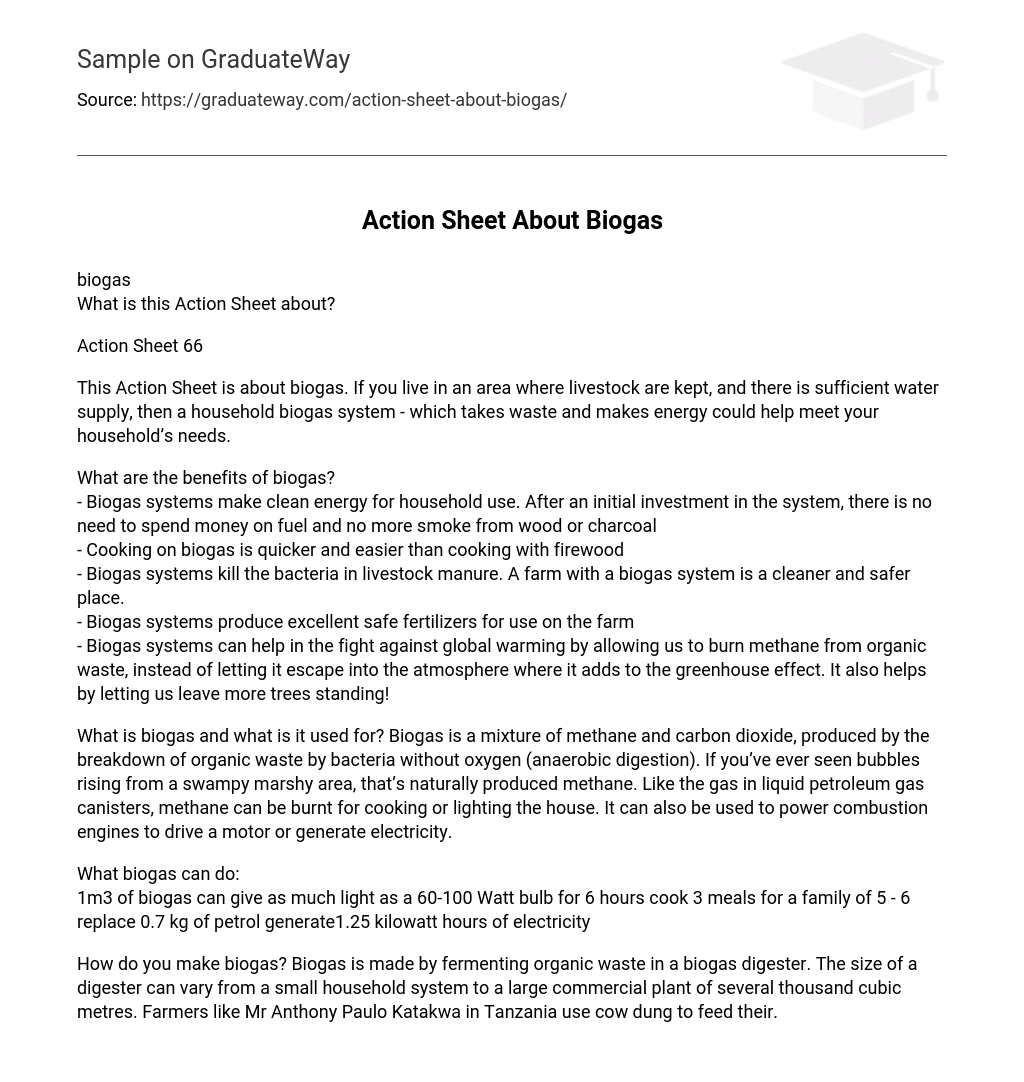If you live in an area where livestock are kept, and there is sufficient water supply, then a household biogas system – which takes waste and makes energy could help meet your household’s needs.
What are the benefits of biogas?
Biogas systems make clean energy for household use. After an initial investment in the system, there is no need to spend money on fuel and no more smoke from wood or charcoal
- Cooking on biogas is quicker and easier than cooking with firewood
- Biogas systems kill the bacteria in livestock manure. A farm with a biogas system is a cleaner and safer place.
- Biogas systems produce excellent safe fertilizers for use on the farm
- Biogas systems can help in the fight against global warming by allowing us to burn methane from organic waste, instead of letting it escape into the atmosphere where it adds to the greenhouse effect. It also helps by letting us leave more trees standing!
What is biogas and what is it used for?
Biogas is a mixture of methane and carbon dioxide, produced by the breakdown of organic waste by bacteria without oxygen (anaerobic digestion). If you’ve ever seen bubbles rising from a swampy marshy area, that’s naturally produced methane. Like the gas in liquid petroleum gas canisters, methane can be burnt for cooking or lighting the house. It can also be used to power combustion engines to drive a motor or generate electricity.
What biogas can do?
1m3 of biogas can give as much light as a 60-100 Watt bulb for 6 hours cook 3 meals for a family of 5 – 6 replace 0.7 kg of petrol generate1.25 kilowatt hours of electricity
How do you make biogas?
Biogas is made by fermenting organic waste in a biogas digester. The size of a digester can vary from a small household system to a large commercial plant of several thousand cubic metres. Farmers like Mr Anthony Paulo Katakwa in Tanzania use cow dung to feed their.





